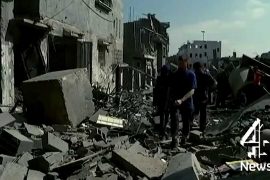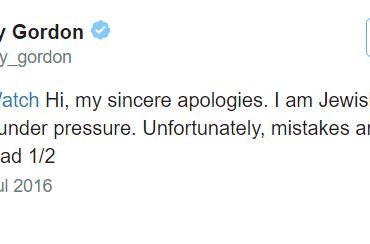1) Writing at Newsweek, Hamza Howidy asks ‘Why Does the Media Ignore Hamas’ Crimes Against Palestinians?’.
“Since the start of the current war between Israel and Hamas, Hamas has committed countless atrocities against its own people in Gaza. This was true even before the war. Yet somehow, despite the fact that Hamas has effectively kidnapped the Gaza strip and all its inhabitants and routinely terrorizes them, these crimes are never reported by Arabic media or western media, nor by global human rights organizations, all of which tend to portray Hamas as a legitimate resistance group who are trying to “liberate” the Palestinians.”
2) At the Alma Center, Sarit Zehavi and Tal Beeri discuss ‘The Threat Posed by Hezbollah’s Comando Unit (Radwan unit) to the State of Israel’.
“The intervention unit (later named the Radwan unit) was responsible for the abduction in July 2006 that led to the outbreak of the Second Lebanon War. The preparations for the abduction and the operation itself were carried out under Mughniyeh’s (Hezbollah’s head chief of staff) direct command. After the assassination of Mughniyeh, it was decided to name the unit after Mughniyeh’s operational name – “Hajj Radwan.””
3) At the FDD, Emanuele Ottolenghi explains ‘How Hezbollah Fundraises Through Crime’.
“Hours after Hamas massacred 1,200 Israelis on October 7, Hezbollah opened a second front against Israel on its northern border, re-igniting a conflict now at risk of escalating into a full-blown war. While Iran provides most of its financing, crime is a core component of Hezbollah’s fundraising – in fact, the group’s avowed religious pieties notwithstanding, there is almost no crime from which its overseas networks will refrain in their pursuit of money: drug trafficking, gun running, blood diamonds, illicit timber, even human trafficking.”
4) WINEP presents analysis by James Lindsay titled ‘Evaluating UNRWA After the Colonna Report’.
“In April, the United Nations issued a report aimed at evaluating the neutrality of UNRWA amid allegations of staff links to Hamas and the October 7 attack. The Colonna report—informally named for the French diplomat who led the team—makes suggestions ranging from the mundane (improving managerial accountability) to the occasionally intriguing (digitizing educational content). But the obvious nature of many of the fifty recommendations points to scandalous mismanagement at the UN aid agency over many decades. Moreover, the longtime refusal to properly vet staff members for terrorist ties or remove violent, antisemitic references from educational materials reflects not just a management failure, but a moral failure.”
5) MEMRI reports on ‘Iranization And Shi’ization In Syria’.
“Since the outbreak in 2011 of the Syria war between the Bashar Al-Assad regime and its domestic and foreign opponents, Iran has acted to consolidate its presence in Syria and tighten its grip on the country, on every level. For Iran, the activity in Syria is not only a means to shore up the Assad regime, but It is also part of exporting Iran’s 1979 Islamic Revolution. This is a major goal of the Iranian regime, which seeks to expand the Shi’ite-Iranian hegemony in the Islamic world at the expense of the Sunni hegemony.”
6) At the JCPA, Tirza Shorr discusses ‘Palestinianism and the Red-Green Alliance: Similarities in the Ideology and Practice of Marxists and Islamists’.
“Since Hamas’s October 7, 2023, massacre, radical Westerners have excused and even justified Hamas’s brutal atrocities committed against more than 1,400 Israeli citizens, residents, and visitors, claiming the massacres were “resistance” to Israel’s “occupation and colonialism.”1 This is not a new charge. It emanated since the 1960s with the rise of “Third Worldist” liberation movements, from Cuba to Algeria to Vietnam, that championed “armed struggle” by the colonized against Western “imperialism.””
7) NGO Monitor provides a report on the Norwegian Refugee Council.
“The NRC’s influence is not merely a product of its provision of aid, but the organization often serves as a coordinator of multi-lateral projects, coordinating between numerous donors, international NGOs, UN agencies, local implementing partners, and governmental bodies. As such, the organization is uniquely positioned to influence humanitarian standards and practices for both aid agencies, as well as donor governments and international bodies.
As detailed in this report, NRC consistently advocates that the US and other Western donors to prioritize access for humanitarian organizations over anti-terror considerations. Similarly, it lobbies Federal agencies to change policy to reduce anti-terror vetting standards, as well as helping to develop mechanisms to circumvent them.”





